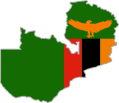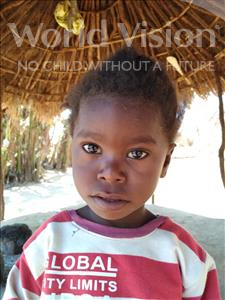Geography and people
Zambia sits in south-central Africa and borders eight countries. High plateaus, mountains, grassy plains and marshland fill the landscape, the area of which is approximately three times the size of the UK.
The climate is tropical, with some areas experiencing a six-month rainy season. Natural resources include cobalt, zinc, lead, coal, gems, precious metals and hydropower.
People of Bantu origin make up most of the population. The country’s official language is English, but Zambians use Bemba more often. Over 70 other languages are also spoken. Most people are involved in agriculture, growing corn, rice, peanuts, vegetables, cotton and coffee.
The country is sparsely populated, and rural Zambians usually live with their extended families in houses clustered together.

Population
Life expectancy
Literacy rate
Access to safe water
Average annual income
Fast facts
Almost 75 percent live below the poverty line (UNICEF, 2012).
Food insecurity threatens the health of many children. Chronic malnutrition rates are high, with 45% of people suffering from stunted growth (UNICEF 2012).
The widespread HIV and AIDS pandemic continues in Zambia. 1.1 million people live with the disease (UNICEF, 2012). The prevalence rate is almost 13 percent.
Please sponsor a child in Zambia today.
Our focus in Zambia
World Vision is committed to partnering with the people of Zambia to improve their lives today and to help deliver sustainable solutions for the future of their children, families and communities. Our child sponsorship programme plays a vital role in this partnership, with donors from the United Kingdom sponsoring 4,637 girls and boys (as of April 2014) across two community projects. In addition to sponsorship, World Vision operates other programmes that benefit communities in Zambia.
Highlights of our work include:
Partnering with communities, and institution such as churches to provide HIV counselling, care and support.
Improving mother and infant health by constructing shelters and maternity wings that ensure mothers give birth under qualified medical supervision.
Working with rural communities to improve access to water and to provide training on good health and sanitation practices.
Helping communities recover from natural disasters specifically drought and flooding.
Helping families to diversify food and income sources.
Our Achievements in Zambia
In 1981-1982, World Vision began its work in Zambia hosting a Christian Council conference in Livingstone and initiating a child sponsorship programme. Since then, some of World Vision’s major accomplishments have included:
Health and water
Assisting communities suffering from drought, providing children with food and clothing and increasing access to clinics and clean water during the 1980s.
Emergency Relief
Providing thousands of people affected by flooding with food, blankets, medicine, and insecticides to combat malaria in 1989.
Education
Helping women with healthcare, childcare and education, as well as offering HIV and AIDS education during the 1990s.
Water
Providing communities with access to clean water for drinking and agriculture and offering water sanitation training since 2000.
PRAY FOR ZAMBIA

Sponsor a child in Zambia
Latest news
-
World Vision joins DEC appeal to raise urgent funds for Indonesia tsunami survivors
Thursday 04, Oct, 2018 -
Indonesia earthquake and tsunami: World Vision UK launches appeal
Wednesday 03, Oct, 2018
Our blog
- Wednesday 10, Oct, 2018
Indonesia tsunami: Aid worker's diary of desperation and hope
Friday 05, Oct, 2018
